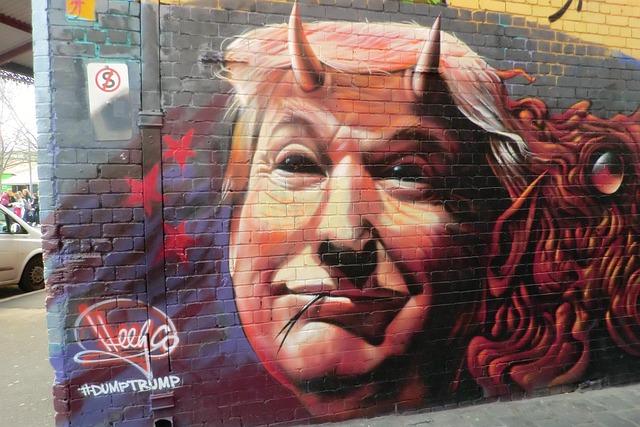In a move drawing sharp international attention, the Trump administration has opted not to participate in the COP30 climate summit held in Brazil, leaving a conspicuous absence at the high-profile global gathering aimed at addressing the escalating climate crisis. The decision has sparked criticism from prominent figures, most notably California Governor Gavin Newsom, who condemned the federal government’s stance during his remarks at the summit. This development underscores the growing divide between federal and state approaches to climate policy amid mounting environmental challenges.
Trump Administration Absence at COP30 Sparks Global Concern Over U.S. Climate Commitment
The Trump administration’s decision to forgo participation in the COP30 climate summit has ignited widespread alarm among global leaders and environmental advocates. This absence not only marks a continuation of the previous administration’s skeptical stance on climate initiatives but also signals a worrying retreat from international cooperation on pressing environmental challenges. As key world powers convene to discuss strategies for reducing carbon emissions and strengthening climate resilience, the United States’ silence reverberates as a stark contrast to the urgency echoed by other nations.
California Governor Gavin Newsom, attending the summit in Brazil, vocally condemned the federal absence, emphasizing the critical role the U.S. must play in mitigating global warming. Speaking before an audience of diplomats and activists, Newsom highlighted several key points:
- State-level leadership: California’s own aggressive climate policies as a blueprint.
- Economic opportunity: Investing in green technology to drive growth.
- International solidarity: Urging federal re-engagement to maintain global trust.
| Issue | Global Impact | U.S. Stance |
|---|---|---|
| Carbon Emissions | Rising threats to ecosystems | Withdrawal from Paris Agreement |
| Renewable Energy | Innovation and job creation | Reduced federal funding |
| International Collaboration | Unified climate action | Limited participation |
California Governor Newsom Delivers Sharp Rebuke Amidst International Environmental Talks in Brazil
From the heart of the Amazon rainforest, California Governor Gavin Newsom did not hold back as he sharply criticized the Trump administration’s decision to skip the COP30 climate summit. In a gathering meant to unite global leaders on urgent environmental policies, this absence was viewed by Newsom as a setback to international progress on climate action. Stressing the importance of state and regional leadership, Newsom positioned California as a steadfast force willing to fill the void left by federal reluctance.
The Governor outlined several key priorities his administration is pushing forward, despite federal disengagement:
- Accelerated clean energy transitions with ambitious renewable targets for 2030 and beyond.
- Investment in climate resilience to protect vulnerable communities from intensifying natural disasters.
- Commitment to global cooperation through partnerships with other subnational governments and international entities.
| Key Climate Metrics | California Target 2030 |
|---|---|
| Carbon Emissions Reduction | 50% below 1990 levels |
| Renewable Energy Usage | 60% of total power |
| Forest Conservation | Maintain 80% cover |
Experts Urge Renewed U.S. Leadership and Policy Action to Bridge Climate Diplomacy Gaps
As the COP30 climate summit convened in Brazil, the absence of the U.S. delegation under the Trump administration underscored a growing void in global climate leadership. California Governor Gavin Newsom seized the opportunity to publicly denounce the federal stance, emphasizing the urgent need for cohesive national policies to meet international climate commitments. Experts warn that this disengagement could widen diplomatic rifts, hinder collaborative solutions, and slow momentum in crucial climate negotiations, especially as other nations push for more ambitious emissions targets and sustainable development initiatives.
Analysts emphasize three critical areas that require immediate focus to bridge the widening gaps:
- Reinstating U.S. leadership in multilateral climate fora to ensure credibility and influence.
- Harmonizing policy frameworks across states to present unified domestic strategies aligned with international goals.
- Enhancing climate finance commitments to support vulnerable nations in adaptation and mitigation efforts.
Without addressing these challenges, the global community risks fragmenting its approach to climate action at a time when unity is paramount. The calls from subnational leaders, like Governor Newsom, highlight a domestic push to fill federal voids, but experts agree that only a coordinated national policy can restore the U.S.’s role as a climate diplomacy catalyst.
To Wrap It Up
As the COP30 climate summit continues without the participation of the Trump administration, global attention remains fixed on how the absence of the United States – one of the world’s largest emitters of greenhouse gases – will impact international efforts to address the climate crisis. Meanwhile, California Governor Gavin Newsom’s vocal criticism from Brazil highlights emerging tensions within U.S. political leadership on environmental policy. The unfolding dynamics at COP30 underscore the ongoing challenges in achieving unified global action on climate change.




